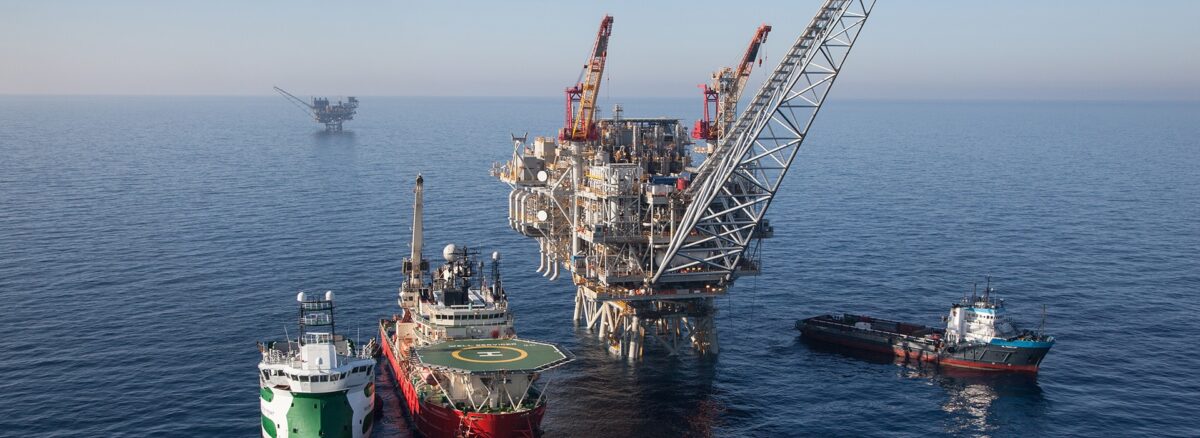Once heavily dependent on the import of oil and natural gas, Israel has become a net exporter of energy.
Thanks to its discovery of major gas fields off its coastline in the past 13 years, Israel has consolidated its role on the global energy market.
In recent years, Israel has exported natural gas to Egypt and Jordan, which signed peace treaties with Israel in 1979 and 1994.
Last week, Israel, Egypt and the European Union signed a landmark agreement — a memorandum of understanding — in Cairo that will enable Israel to export its natural gas to Europe via Egypt. Under the accord, Israel will send natural gas to Egypt to be liquified, and from there it will be shipped to Europe by sea.
“This is a tremendous moment in which little Israel is becoming a significant player in the international energy market,” said Israeli Energy Minister Karine Elharrar.

The memorandum of understanding, which also marks a historic moment in Israel’s cooperation with Egypt, is expected to yield $290 million in annual sales for Israel.
Last year, Israel’s natural gas revenues reached a record of $380 million.
Ursula von der Leyen, the president of the European Commission, said the agreement materialized due to Russia’s invasion of Ukraine on February 24.
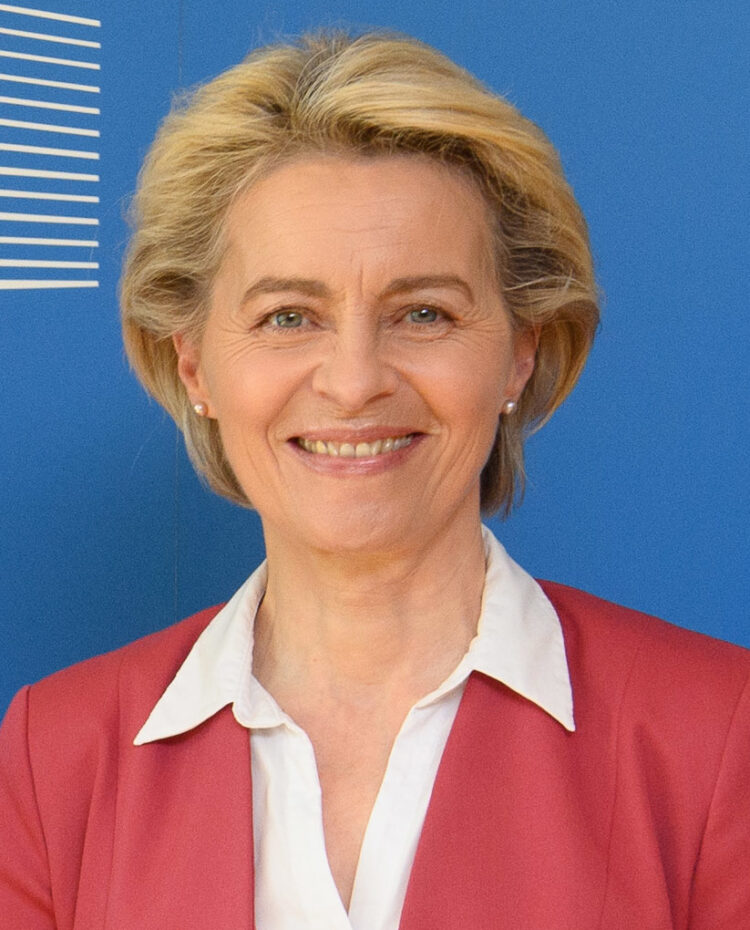
Until that moment, the European Union imported about 40 percent of its natural gas from Russia. But with the imposition of sweeping American and European economic sanctions against Russia, Russian President Vladimir Putin cut off supplies to various European countries, forcing them to diversify its sources of energy.
As Von der Leyen suggested, the war in Ukraine has given Israel’s burgeoning energy industry a major boost. “The memorandum of understanding will allow Israel to export Israeli natural gas to Europe for the first time, positioning Israel … as a key player” in the energy market, she said.
Israel established itself as a natural gas exporter with the discovery of the Tamar field in 2009. Tamar, about 90 kilometers west of Haifa, lies in Israel’s economic waters. When the deposit was found, Tamar was estimated to contain enough natural gas to supply Israel’s internal needs for several decades. Since then, much more natural gas has been discovered at Tamar.
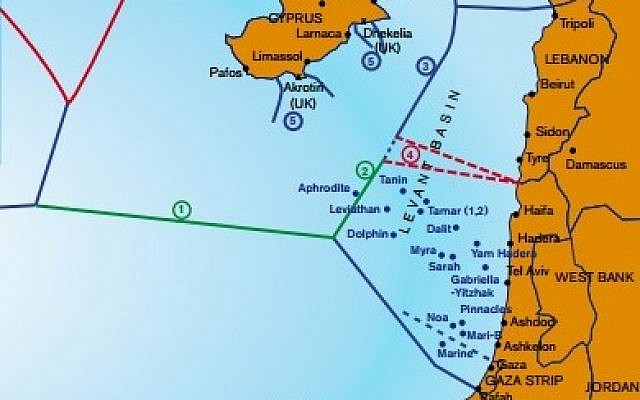
In 2010, Israel made its greatest discovery when the Leviathan field was found. Thirty kilometres west of Tamar, Leviathan contains an estimated 22 trillion cubic feet of natural gas.
Israel has made discoveries in the Dolphin and Tanin fields as well, though they contain considerably less natural gas than Leviathan and Tamar.
Israel’s newest field, Karish, is currently being developed by Energen, a British-based company. On June 5, Energen brought a floating rig to the site and began connecting it to the gas wells and piping networks. The new platform will start operating in the autumn.
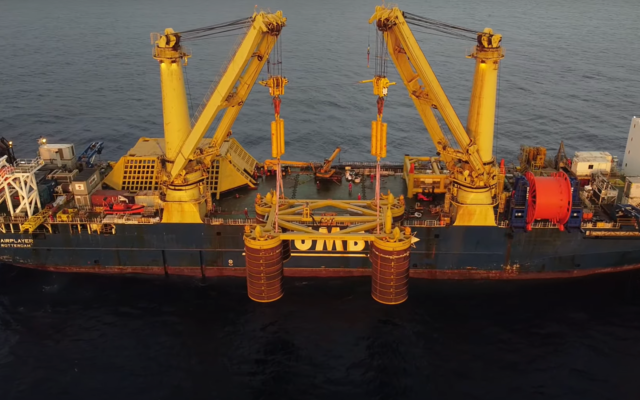
The arrival of the rig rekindled a simmering dispute between Israel and Lebanon over their maritime boundary.
Lebanese Prime Minister Najib Mikati claimed that Israel was “encroaching on Lebanon’s maritime wealth and imposing a fait accompli in a disputed area.” He described the situation as “extremely dangerous.”
The leader of Hezbollah, Hassan Nasrallah, threatened to strike the platform if drilling began before Israel and Lebanon reached an agreement.
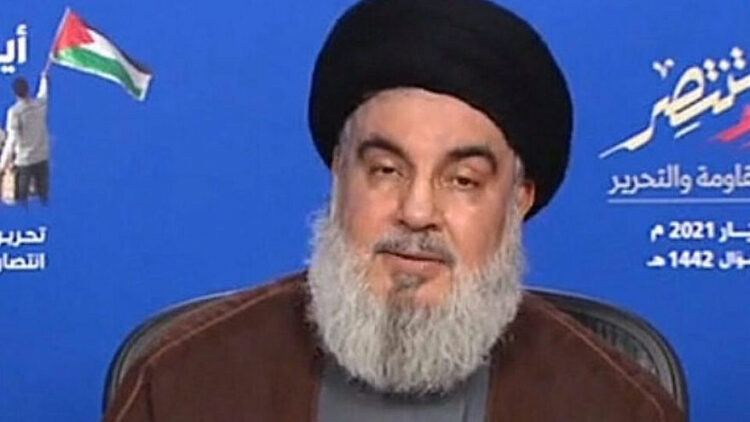
Responding to Nasrallah’s threat, Israel issued a joint statement signed by Defence Minister Benny Gantz and Foreign Minister Yair Lapid. It read, “The State of Israel prioritizes the protection of its strategic assets, and is prepared to defend them and the security of its infrastructure, all in accordance with its rights. At the same time, we call on Lebanon to accelerate negotiations on the maritime border. Locating gas-based energy sources can greatly assist Lebanon’s economy and its citizens.”
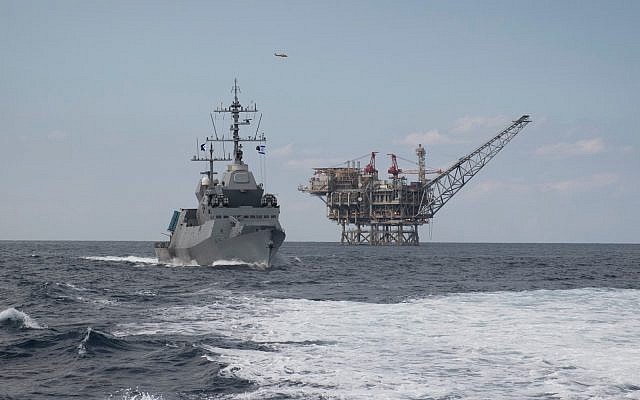
The chief of staff of the Israeli armed forces, General Aviv Kohavi, was far more blunt. He warned Lebanon that an attack on Israel’s natural gas platforms would result in “unprecedented bombing” of Lebanon’s infrastructure.
On June 14, a day after U.S. diplomat Amos Hochstein arrived in Beirut to continue his mediation efforts, Lebanon modified its position on the Karish field. The Lebanese government offered to drop its claim to Karish if its right to the nearby Qana field is recognized by Israel.
Hochstein said that Lebanon’s offer enabled him to relaunch indirect talks between Israel and Lebanon.
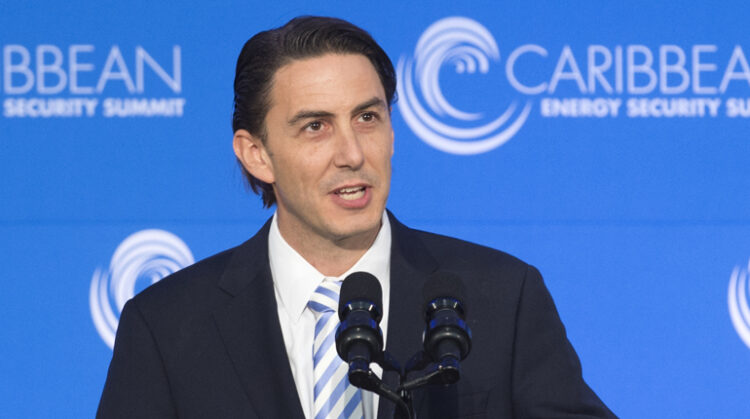
Negotiations got underway toward the end of 2020, but ground to a halt last spring after Lebanon made what Israel charged was an unreasonable demand.
Lebanon initially demanded 860 square kilometres of territory, including Qana, in the disputed maritime area. But in a surprising move, the Lebanese government asked for an additional 1,430 square kilometers, or a total of 2,290 square kilometres.
Israel rejected the demand and the talks broke down.
Last year, U.S. President Joe Biden appointed Hochstein as mediator. Hochstein told the Lebanese leadership that its demand for additional territory was untenable, forcing Lebanon to compromise.
Through Hochstein, Israel is eager to reach an accord with Lebanon, which is currently struggling with a severe economic downturn.
An agreement would be a win-win situation for both sides.
It would help stabilize Israel’s often tense relations with Lebanon. It would enhance Israel’s status as an energy producer. And it would bring a measure of economic relief to Lebanon.
